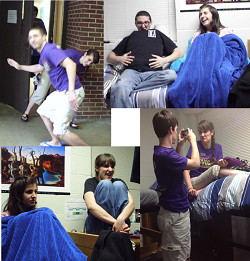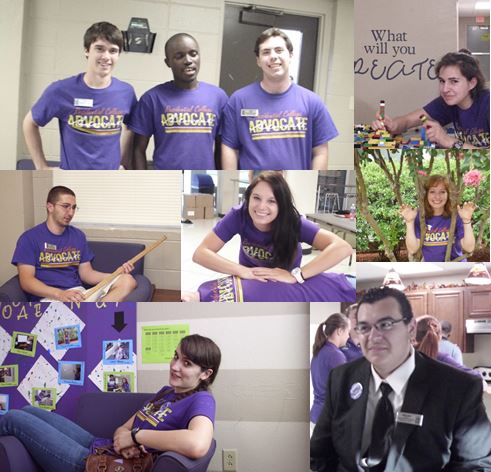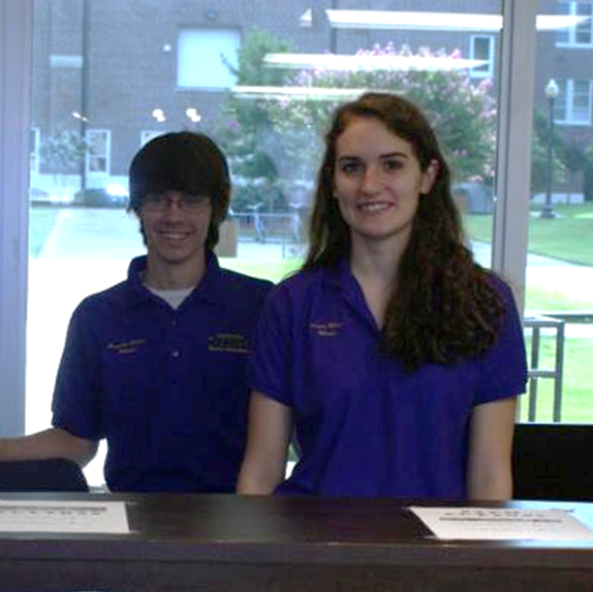Okay, in order to let you fully understand how much Residential Colleges mean to me, we’re going to start out with a bit of background info. Pretty much my biggest fear when going off to college has to do with one thing:
I suck at making friends.
No joke. It’s been like this for as long as I can remember. Perhaps I have an abnormally abrasive personality or I just do things and think about things in a way that most people don’t understand. Or maybe I am just a horrible judge of people. Who knows. The point is that in high school I had what I felt like was the best group of friends. We were inseparable. Those were my longest friendships (and that was only about five years at the most). They were the only people that I really felt like I could trust and count on. And then here comes college and suddenly we are all going in different directions and I’m back where I started before I met them. And now we reach the other problem.
I am incredibly shy when I first meet people.
There is no doubt, I am an introvert. But when you show up at college everyone is telling you that they met their best friends their first week here and that you should talk to as many people as you can and get out there and participate in everything. So…I pretty much resigned myself to defeat. I tagged along with whoever was nearby and tried to feel included and to warm up to people. But let me tell you, when you just settle for hanging out with whoever you happen to be near at the time, it’s not going to end well. And this is where Residential Colleges come in.
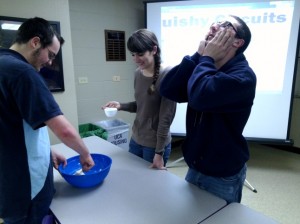 I briefly mentioned in my first blog post that as a Mentor/Advocate I am pretty involved in STEM’s outreach projects. This is true now, but as a freshman I was too shy to be very involved in these activities. However, we had been informed the summer before getting here that as a member of a Residential College we had to participate in at least two outreach activities. So, there I was, already over halfway done
I briefly mentioned in my first blog post that as a Mentor/Advocate I am pretty involved in STEM’s outreach projects. This is true now, but as a freshman I was too shy to be very involved in these activities. However, we had been informed the summer before getting here that as a member of a Residential College we had to participate in at least two outreach activities. So, there I was, already over halfway done
with my first year of college and I still hadn’t participated in even one of them.
And now we finally get to the awesomeness that is Residential Colleges.
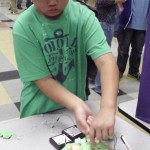 I ended up going to my first outreach activity, which happened to be a Science Night (where we go to middle schools and show kids cool science activities) with a couple of my lab partners from one of my STEM classes (recall, all members of a Residential College have to be enrolled in classes within the building). So, I finally got involved in the building because I had classes with other members of the Residential College, which, frankly, is one of the best things that has happened to me since I’ve been here. I mean, don’t get me wrong. The academic advantages that Residential Colleges provide are extremely important. But if you aren’t happy because you don’t have a group of friends to support you and to be there to goof off with you when you are about to explode from stress…well then, the academic advantages aren’t going to matter. Because you aren’t going to do well in college if you aren’t happy and you can’t find the right balance between school and relaxing.
I ended up going to my first outreach activity, which happened to be a Science Night (where we go to middle schools and show kids cool science activities) with a couple of my lab partners from one of my STEM classes (recall, all members of a Residential College have to be enrolled in classes within the building). So, I finally got involved in the building because I had classes with other members of the Residential College, which, frankly, is one of the best things that has happened to me since I’ve been here. I mean, don’t get me wrong. The academic advantages that Residential Colleges provide are extremely important. But if you aren’t happy because you don’t have a group of friends to support you and to be there to goof off with you when you are about to explode from stress…well then, the academic advantages aren’t going to matter. Because you aren’t going to do well in college if you aren’t happy and you can’t find the right balance between school and relaxing.
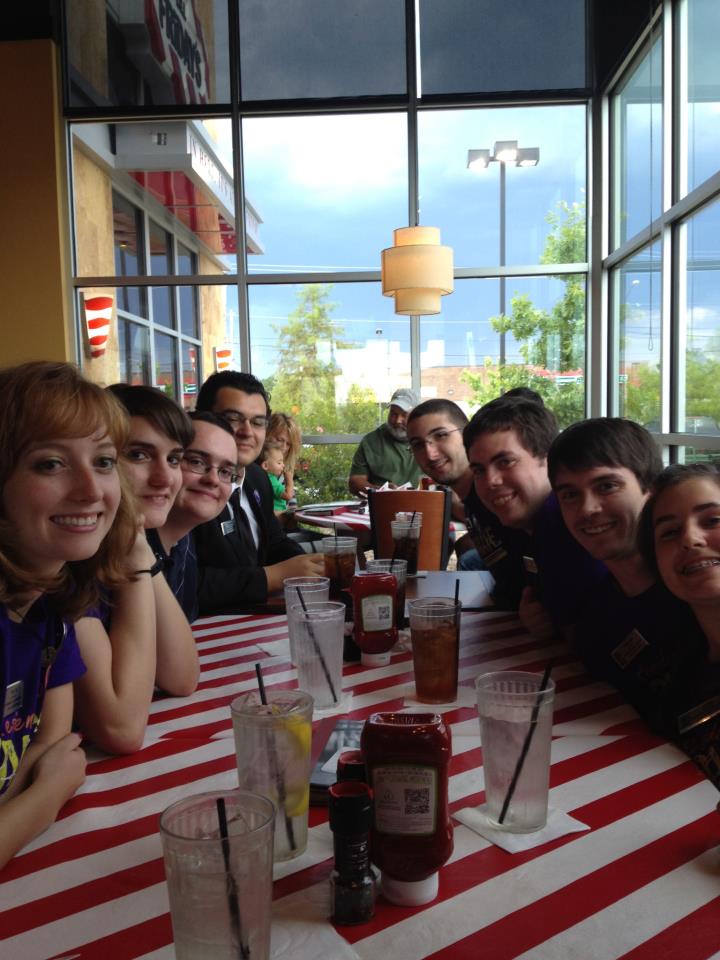 Getting involved with these outreach activities, that, by the way, are something that you will only find in Residential Colleges, is how I finally made some positive, lasting friendships. I am still friends with the two people that I went to Science Night with that night after lab. I see them at least every once in a while and all three of us still live in the building because we love this place. And I feel like that’s probably mostly due to the fact that we got involved and found other people that are weird just like we are. To me, that’s the beauty of Residential Colleges. You stick a bunch of people with similar tastes together and you are bound to find people with similar personalities that can become really good friends. One of the guys that I went to Science Night with that night is still one of my best friends and he is the reason that I am a part of the group of friends that I hang out with now. I definitely owe that to Residential Colleges, and especially STEM. I believe it is the perfect environment to form a great group of friends.
Getting involved with these outreach activities, that, by the way, are something that you will only find in Residential Colleges, is how I finally made some positive, lasting friendships. I am still friends with the two people that I went to Science Night with that night after lab. I see them at least every once in a while and all three of us still live in the building because we love this place. And I feel like that’s probably mostly due to the fact that we got involved and found other people that are weird just like we are. To me, that’s the beauty of Residential Colleges. You stick a bunch of people with similar tastes together and you are bound to find people with similar personalities that can become really good friends. One of the guys that I went to Science Night with that night is still one of my best friends and he is the reason that I am a part of the group of friends that I hang out with now. I definitely owe that to Residential Colleges, and especially STEM. I believe it is the perfect environment to form a great group of friends.
And the beauty of having a great group of friends is that you can relax and be yourself (which in my case is a pretty weird person) and thus have the best college experience that you can possibly have. Just one more reason why Residential Colleges are fantastic and I would recommend them to everyone.
